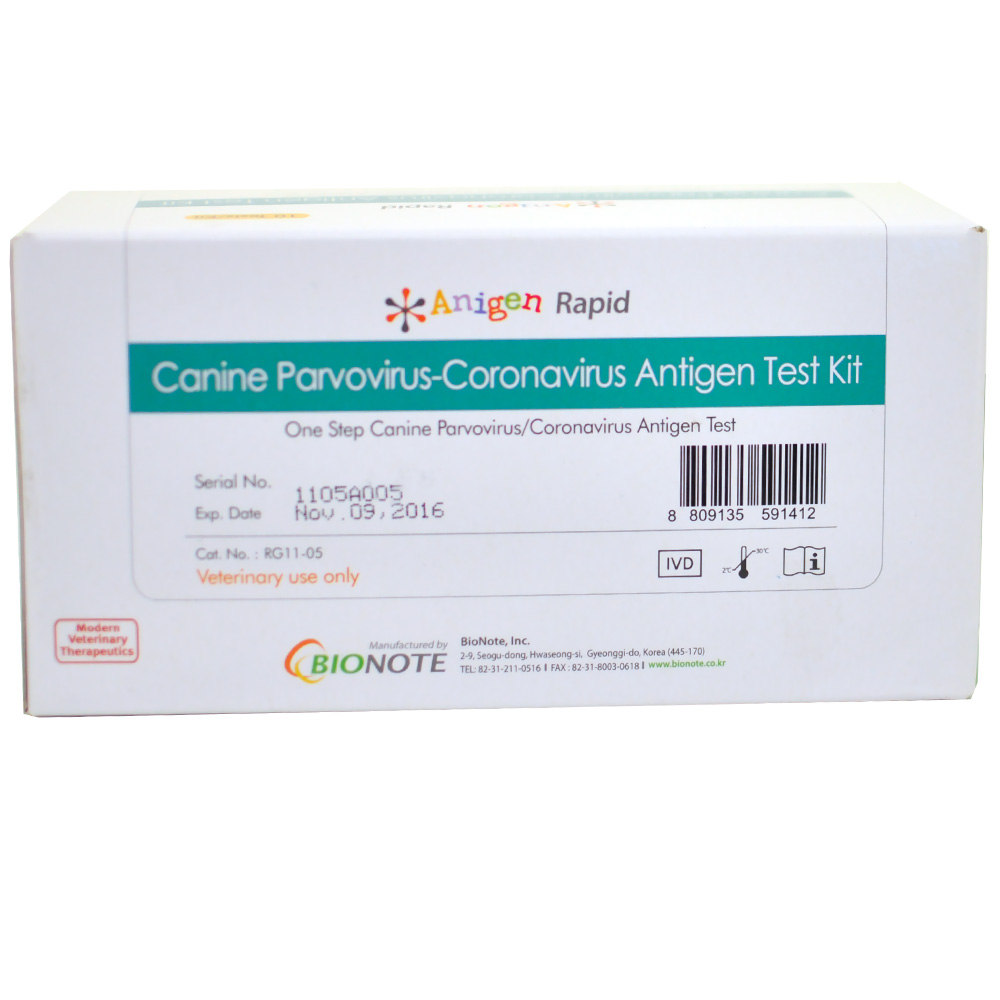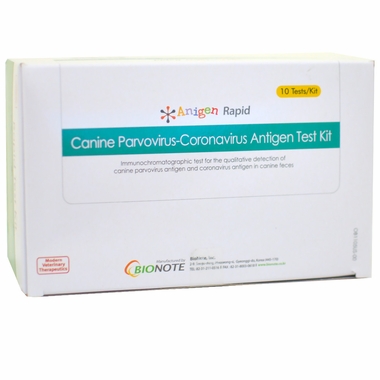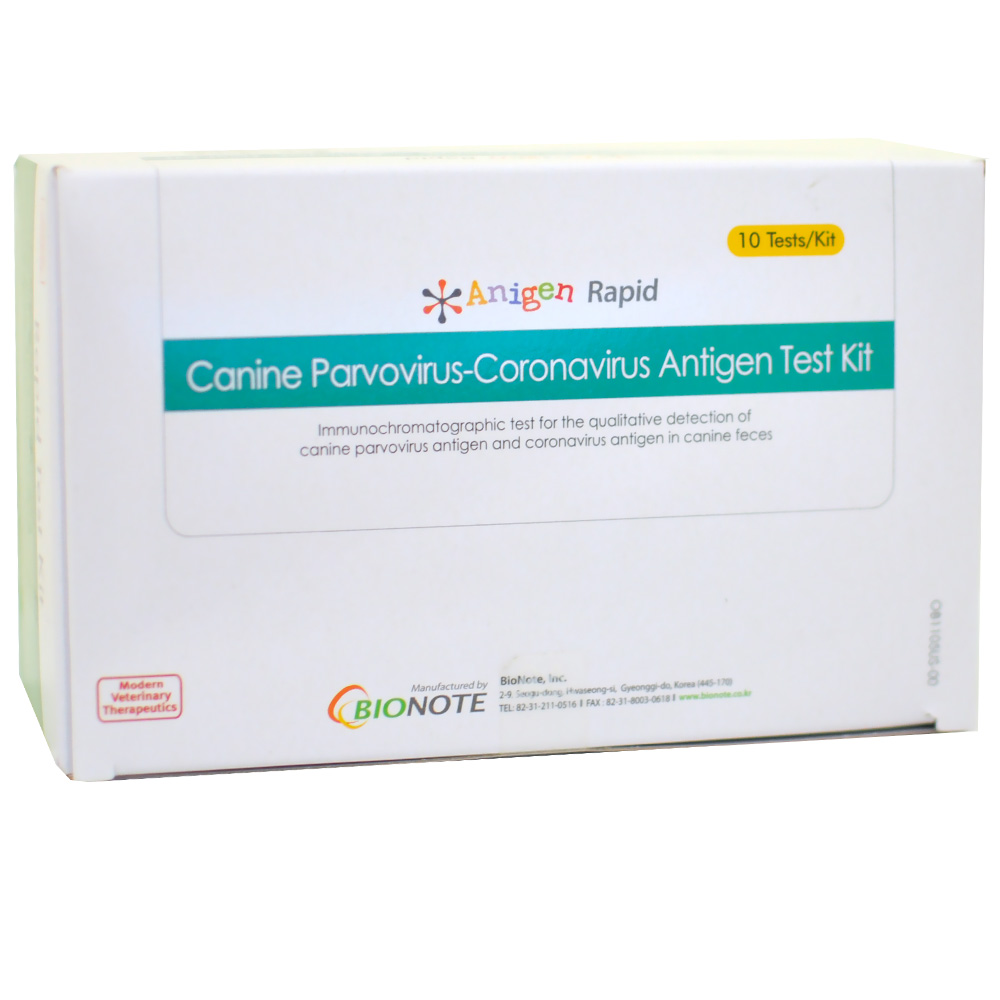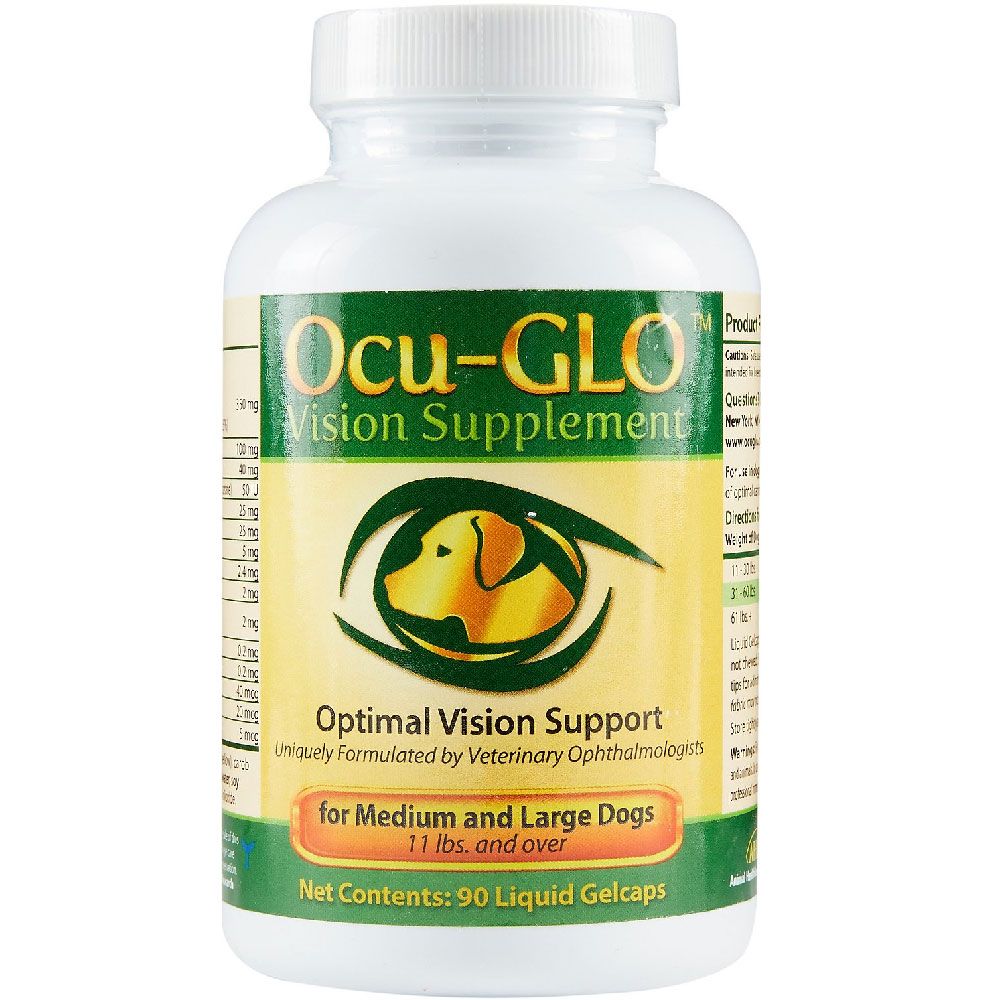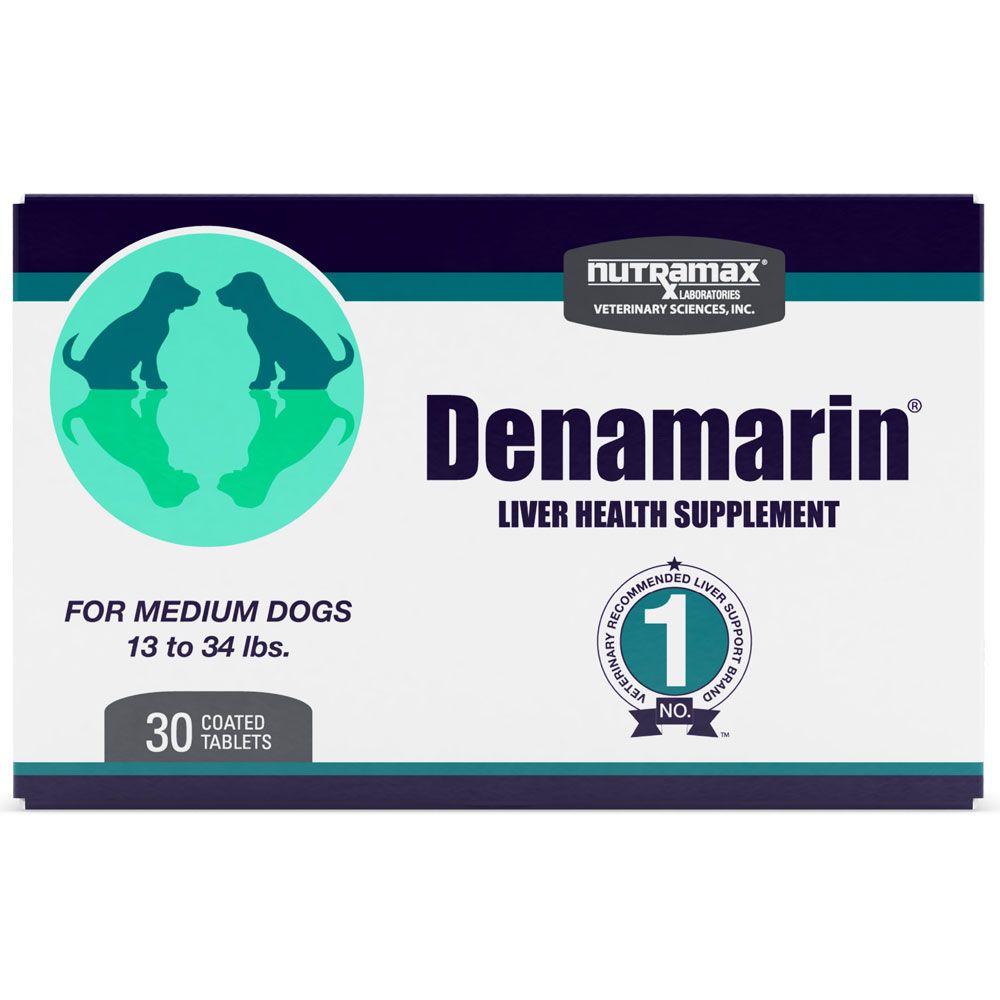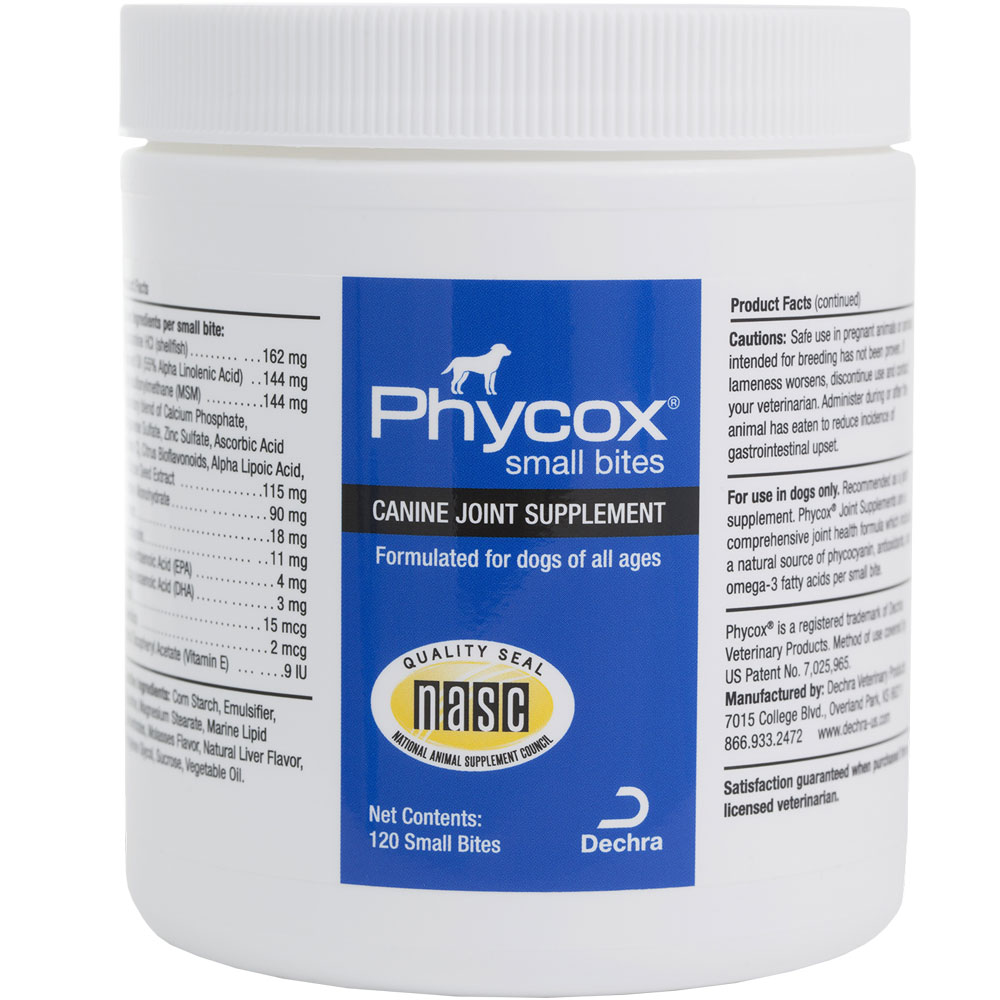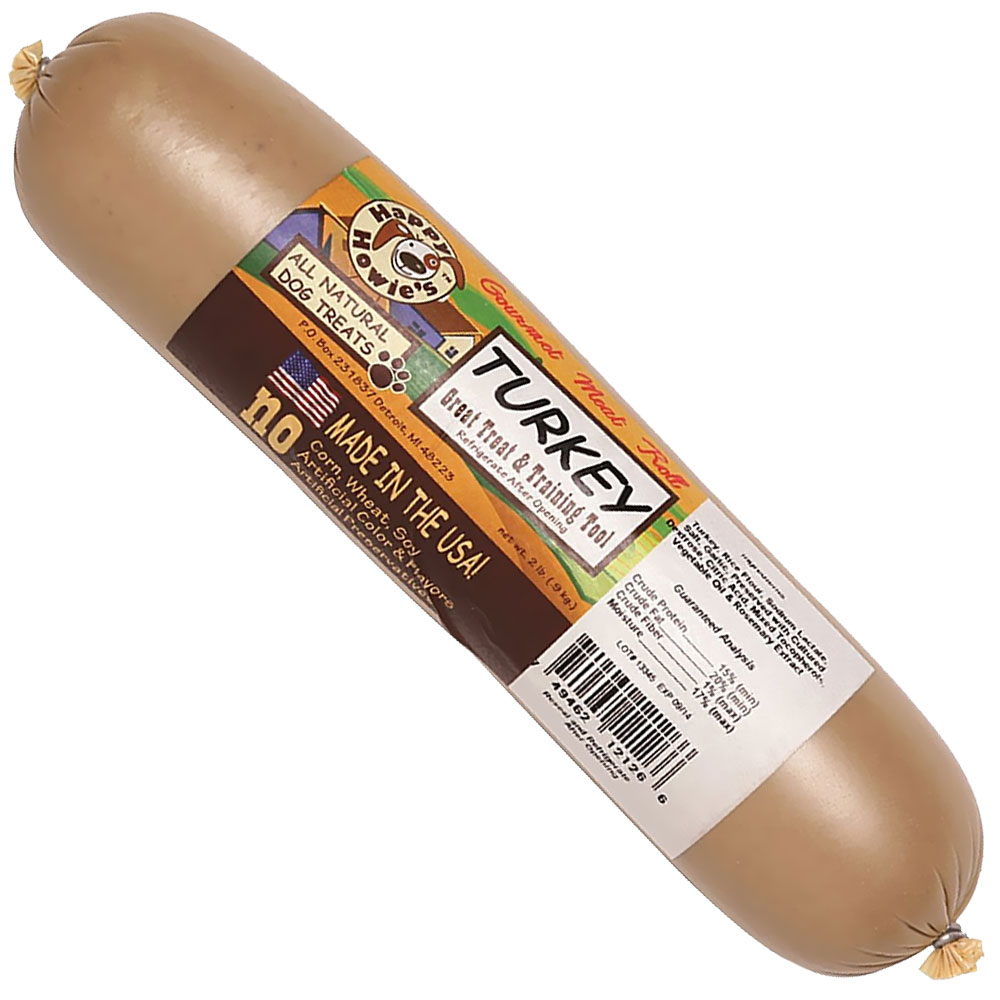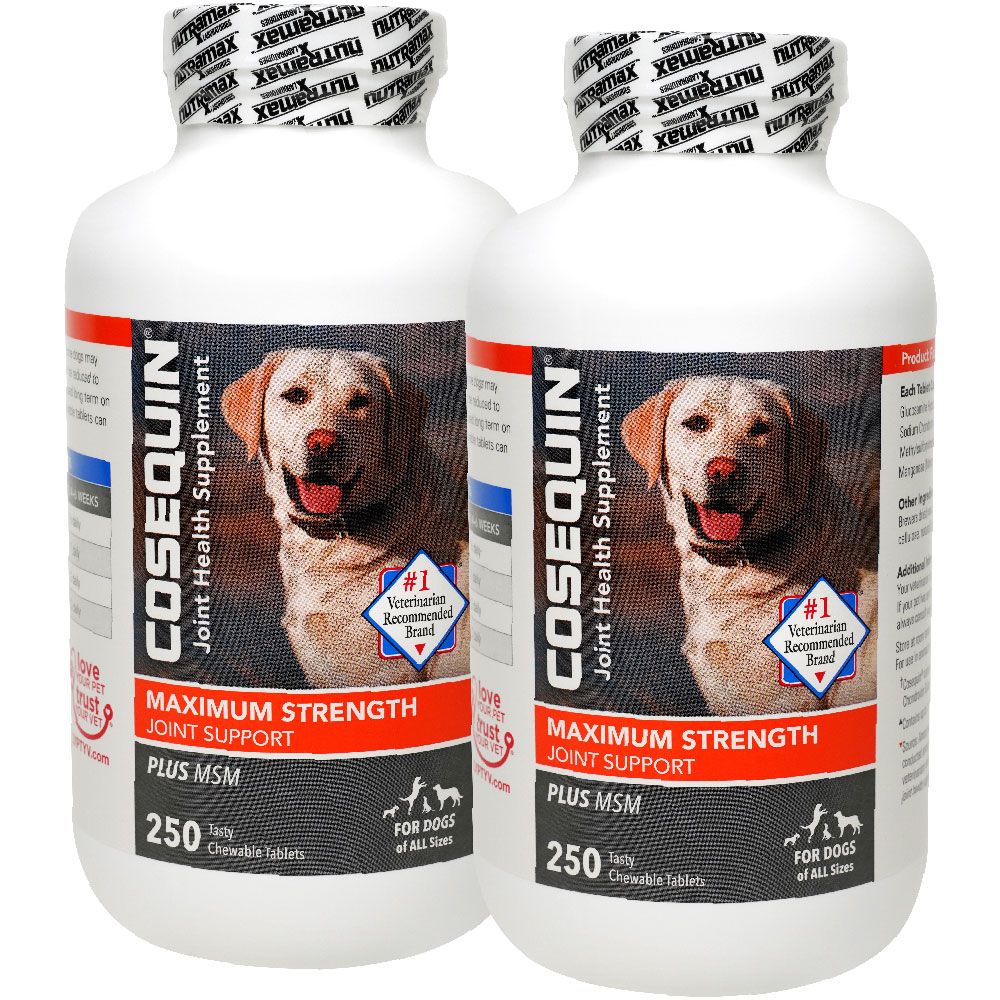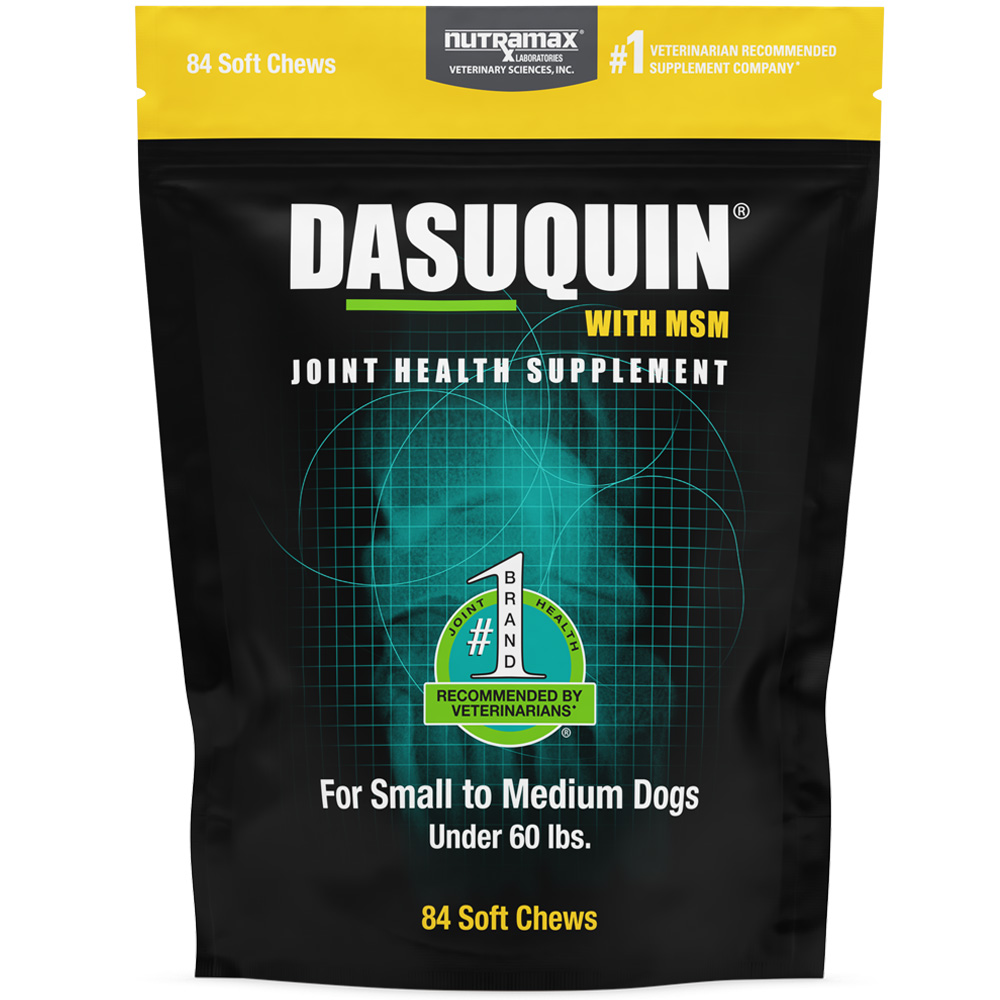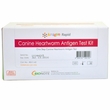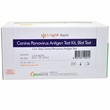Anigen Canine Parvovirus-Coronavirus Antigen Test Kit (10 Tests)
Description
Anigen Canine Parvovirus-Coronavirus Antigen Test Kit is an immunochromatographic test for the qualitative detection of parvovirus antigen and coronavirus antigen in feces. The parvovirus is a highly contagious viral disease that can severely threaten your dog's health, and can prove fatal if left untreated. Similarly, the coronavirus is a highly contagious viral disease that can occur at the same time as a parvovirus infection.
Anigen Canine Parvovirus-Coronavirus Antigen Test Kit can detect the antigens for these viruses in your pet's feces to determine which affliction, if any, may be affecting your pet. This package contains 10 tests and a test kit to determine which virus may be affecting your dog. For more information on what is included in this package and how to use these kits, you can find the full package insert in PDF form here.
Key Benefits
- Highly purified antibodies produced by biotechnology for the detection and capture of canine parvovirus and coronavirus antigens
- Highly sensitive and specific
- Simple and easy to use
- Storage at room temperature
- Works with feces
- 2-year shelf life
- Small sample volume
Materials provided(10 tests/kit)
- Ten(10) Anigen Rapid Canine Parvovirus-Coronavirus Antigen Test Devices
- Ten(10) Specimen Tubes containing assay diluent buffer (preservative: sodium azide)
- Ten(10) Sample collection swabs
- Ten(10) Disposable droppers
- One(1) Instructions for use
Useful Information
Specimen Collection and Preparation:
- Samples from canine feces should be used for this test.
- The speimens should be tested immediately after collection.
Procedure of the Test
- Collect a sample from canine feces using a swab.
- Inset the swab into a specimen tube containing 1ml of assay diluent.
- Mix the swam sample with the assay diluent vigorously to extract the viruses.
- Remove a test device from an aluminum foil pouch, and place it on a flat and dry surface.
- Using a disposable dropper provided, take an aliquot from the extracted and mixed sample in the tube.
- If the feces particles are large, wait for 1 minute until the large particles are settled, and then take the supernatant of the sample in the tube.
- Add four(4) drops into the sample hole using the disposable dropper. The assay diluent should be added exactly, slowly, drop by drop.
- As the test begins to work, you will see a purple color move across the result window in the center of the test device. If the migration has not appeared after 1 minute, add one more drop of the mixed assay diluent to the sample well.
- Interpret test results at 5-10 minutes. Do not decide after 20 minutes.

Interpretation of the Test
A color band will appear in the left section of the result window to show that the test is working properly. This band is the control band "C". The right section of the result window indicates the test results. If another color band appears in the right section of the result window, this band is the test band "T".
- Negative result The presence of only one band "C" within the result window on both of the CPV Ag and CCV Ag test areas indicates a negative result.
- Simultaneous CPV and CCV Positive Result The presence of two color bands ("T" and "C") within the result window on both of the CPV Ag and CCV Ag test areas respectively, no matter which band appears first, indicates a positive result of Canine Parvovirus and Canine Coronavirus simultaneously.
- CPV Positive Result The presence of two colors bands ("T" and "C") within the result window on the CPV Ag test area and the presence of only one band ("C") within the result window on the CCV Ag test area, no matter which band appears first, indicates a positive result of Canine Parvovirus.
- CCV Positive Result The presence of two color bands ("t" and "C") within the result window on the CCV Ag test area and the presence of only one band ("C") within the result window on the CPV Ag test area, no matter which band appears first, indicates a positive result of Canine Coronavirus.
- Invalid Result If the purple color band is not visible within the result window after performing the test, the result is considered invalid. The directions may not have been followed correctly or the test may have deteriorated. It is recommended that the specimen be re-tested.





Limitations of the test Although the Anigen Rapid CPV/CCV Ag test kit is very accurate in detecting Canine Parvovirus antigen, a low incidence of false results can occur. Other clinically available tests are required if questionable results are obtained. As with all diagnostic tests, a definitive clinical diagnosis should not be based on the results of a single tests, but should only be made by the veterinarian after all clinical and laboratory findings have been evaluated.
Precautions:
- For veterinary diagnostic use only.
- For best results, strict adherence to the instructions is required.
- All specimens should be handled as being potentially infectious.
- Do not open or remove test kits from their individually sealed pouches until immediately before their use.
- Do not use the test kit if the pouch is damaged or the seal is broken.
- Do not reuse test kits.
- All reagents must be at room temperature before running the assay.
- Do not use reagents beyond the stated expiration date marked on the label.
- The components in this kit have been quality control tested as a standard batch unit. Do not mix components from different lot numbers.
Storage and Stability
The kit can be stored at room temperature (2-30°) or refrigerated. The test kit is stable through the expiration date marked on the package label. DO NOT FREEZE. Do not store the test kit in direct sunlight.


